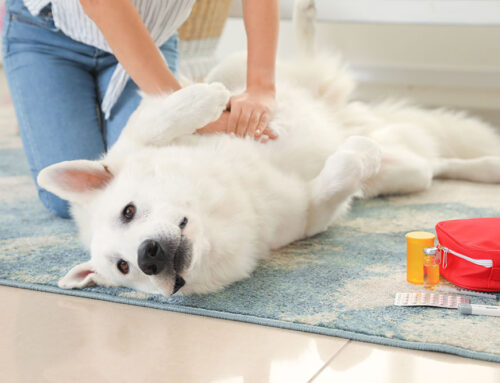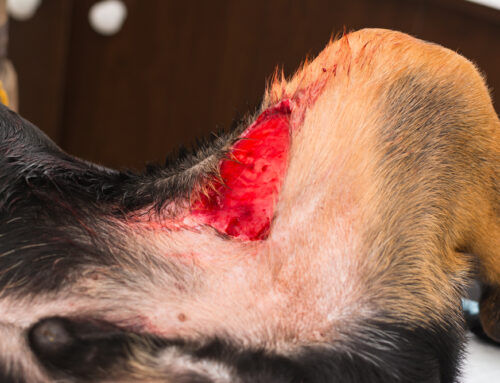The average lifespan of most pets is about 10 to 15 years, and you want to enjoy them in your life for as long as possible. While certain genetic factors that influence their life expectancy can’t be changed, how you care for your pet can make a difference in how long they live. Our team at Alpine Animal Hospital provides six tips to help you add years to your pet’s life.
#1: Take your pet for regular wellness exams
Pets should be seen by a veterinary professional at least once a year, and every six months when they reach their senior years. During a wellness examination, we will evaluate your pet from their teeth to their tail, to ensure they are happy and healthy. We may also recommend diagnostics, such as bloodwork, urinalysis, or fecal checks, to evaluate your pet for certain conditions. When health issues are caught in the early stages, they are easier to treat and manage, improving and prolonging your pet’s life.
#2: Ensure your pet receives appropriate preventive care
Keep your pet up to date on the recommended vaccinations, to protect them from potentially life-threatening diseases. In addition, ensure your pet receives year-round parasite preventives to protect them against harmful parasites, including:
- Fleas — Fleas can cause problems for your pet, including flea bite allergies, tapeworms, and anemia.
- Ticks — Ticks can transmit potentially deadly diseases, such as Lyme disease, anaplasmosis, and ehrlichiosis.
- Heartworms — Heartworms can severely damage your pet’s heart, lungs, and vasculature, which can result in sudden death.
- Intestinal parasites — Intestinal parasites can cause issues such as weight loss, vomiting, diarrhea, and anemia.
#3: Spay or neuter your pet
Spaying or neutering your pet protects them from several health issues, including mammary cancer, uterine infections, and prostate issues. In addition, the procedure reduces their urge to roam, which can protect them from dangers such as animal fights and being hit by a car.
#4: Keep your pet at a healthy weight
Obesity in pets is an increasing problem in the United States, and pets who carry excess weight are at higher risk for several health issues, including arthritis, cancer, heart disease, and urinary tract issues. Steps to maintain your pet at a healthy weight include:
- Veterinary assessment — Allow our veterinary professionals to assess your pet’s weight. Your pet’s thick coat may lead you to conclude they are only fluffy, but we will have a more unbiased opinion.
- Weight monitoring — Once your pet’s weight status has been determined, monitor their weight regularly, to ensure they stay at an ideal weight, or start losing the excess weight, if needed. You should weigh them regularly using a consistent scale, and assess them using a body conditioning score (BCS).
- Appropriate food — Choose a diet that is well-balanced and has high quality protein sources as the first ingredients on the label. Our veterinary professionals can help you choose a food that is right for your pet.
- Food portion — Use the recommended portion label on your pet’s food bag to help determine an appropriate portion size. You can also use calorie calculators to calculate your pet’s daily energy requirements.
- Food measuring — Once your pet’s food portion has been determined, use measuring cups to ensure they are receiving the correct amount of food. Eyeballing the portion size typically leads to overfeeding.
#5: Provide regular exercise for your pet
Your pet needs daily physical and mental exercise to keep them engaged and stimulated. Most pets need physical activity for at least 15 minutes, twice a day, and certain breeds, such as German shepherds and Labrador retrievers, need much more to meet their exercise requirements. Exercising your pet’s brain is also important to provide enrichment to their lives. Activities to keep them mentally stimulated include:
- Food puzzle toys — Feed your pet’s meals in a food puzzle toy, to make mealtimes more fun and entertaining.
- Nose work games — Play nose work games with your pet, to make them work for their treats. You can hide treats around the house, and have your pet search and find their reward.
- Obstacle course — Create an obstacle course in your home using common household items, such as broomsticks, couch cushions, and footstools, which your pet can weave around, jump over, and crawl under. Lead them through the course initially, until they understand the game.
#6: Provide regular dental care for your pet

Regular dental care is important to your pet’s overall wellbeing. Periodontal disease occurs in about 80% of pets before they are 3 years of age. Dental disease can cause many issues for your pet, including tooth loss, jaw fractures, and tooth abscesses, and also organ damage when the bacteria travels to other body locations. Your pet’s dental health should be assessed at least once a year, so we can provide professional veterinary cleanings when necessary. These cleanings involve putting your pet under general anesthesia to ensure their teeth are appropriately evaluated and cleaned. X-rays are also necessary to fully evaluate the bony structures supporting your pet’s teeth. You can also significantly improve your pet’s dental health by brushing their teeth daily.
By providing appropriate veterinary care, keeping your pet at a healthy weight, and ensuring they receive adequate physical and mental exercise, you can increase your pet’s life expectancy. If you would like to schedule a wellness exam or dental cleaning for your pet, contact our Alpine Animal Hospital team, to schedule an appointment.







Leave A Comment